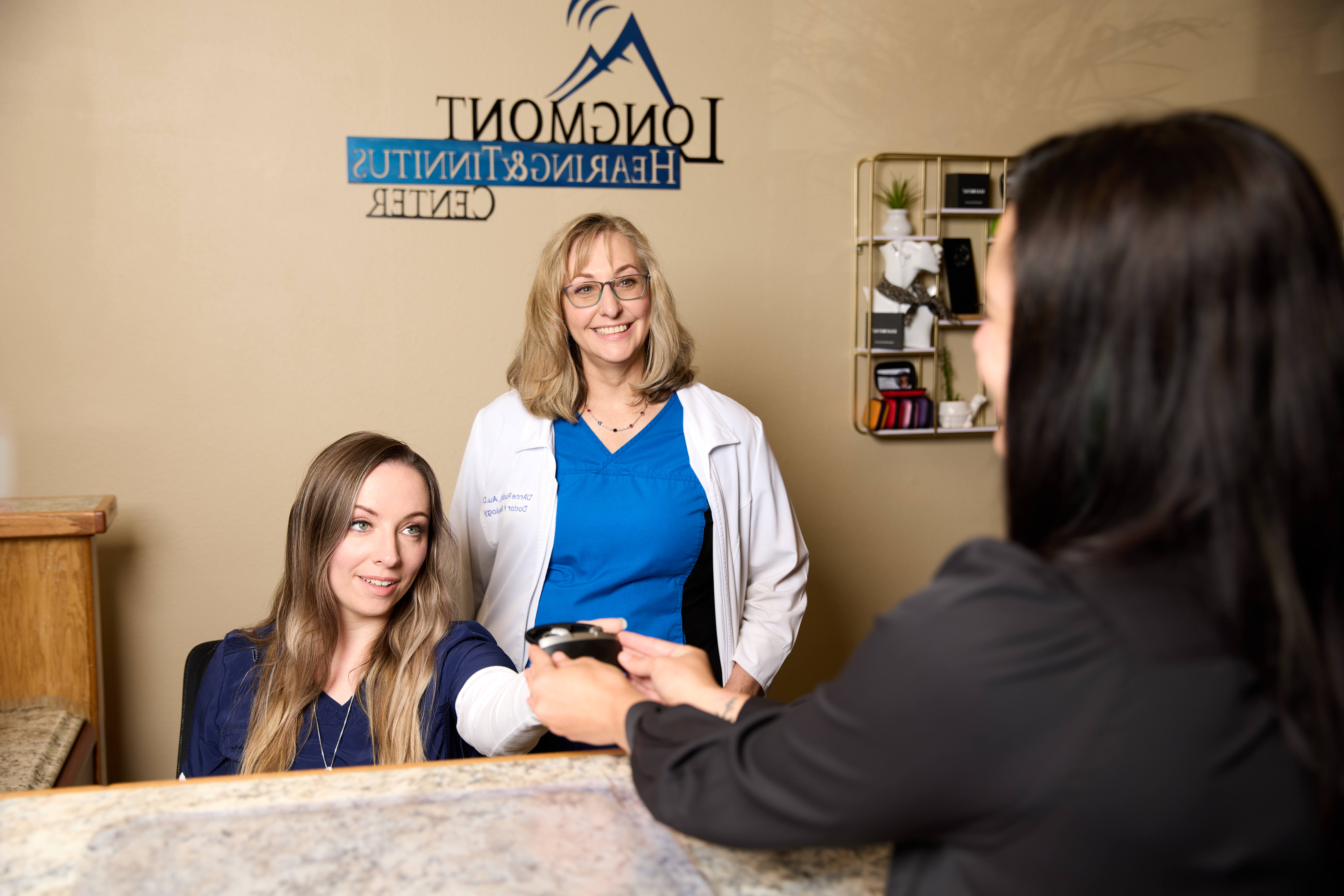

Longmont’s Independent, Highest-Rated and Most Advanced Team of Hearing Doctors
Longmont’s Independent, Highest-Rated and Most Advanced Team of Hearing Doctors
Celebrating 32 Years of Helping Thousands of Local People to Achieve Better Hearing Through The Highest Levels of Audiological Care.
Celebrating 32 Years of Helping Thousands of Local People to Achieve Better Hearing Through The Highest Levels of Audiological Care.





Over 600+ Google Reviews





Over 600+ Google Reviews

On a Personal Note.
On a Personal Note.
A Personal Message from Owner, Dr. D’Anne Rudden
A Personal Message from Owner, Dr. D’Anne Rudden
“Some people believe the solution to hearing loss is simply a set of hearing aids. Yet, if you ask someone who has successfully achieved better hearing, they’ll tell you that great hearing technology is only part of the puzzle.
“Some people believe the solution to hearing loss is simply a set of hearing aids. Yet, if you ask someone who has successfully achieved better hearing, they’ll tell you that great hearing technology is only part of the puzzle.
The more significant component is partnering with a trusted team of Doctors of Audiology who have helped thousands of others achieve the outcomes you’re striving for.
Longmont Hearing and Tinnitus Center is the highest-rated, independent, family-owned hearing and tinnitus healthcare provider, with a reputation spanning three decades. Known for not just following audiological best practices, but continually redefining them.
For those who understand that better hearing is a journey, not a destination, and value having an experienced, passionate team by their side, you’re in the right place.”
The more significant component is partnering with a trusted team of Doctors of Audiology who have helped thousands of others achieve the outcomes you’re striving for.
Longmont Hearing and Tinnitus Center is the highest-rated, independent, family-owned hearing and tinnitus healthcare provider, with a reputation spanning three decades. Known for not just following audiological best practices, but continually redefining them.
For those who understand that better hearing is a journey, not a destination, and value having an experienced, passionate team by their side, you’re in the right place.”

Expert Care for Your Hearing Health
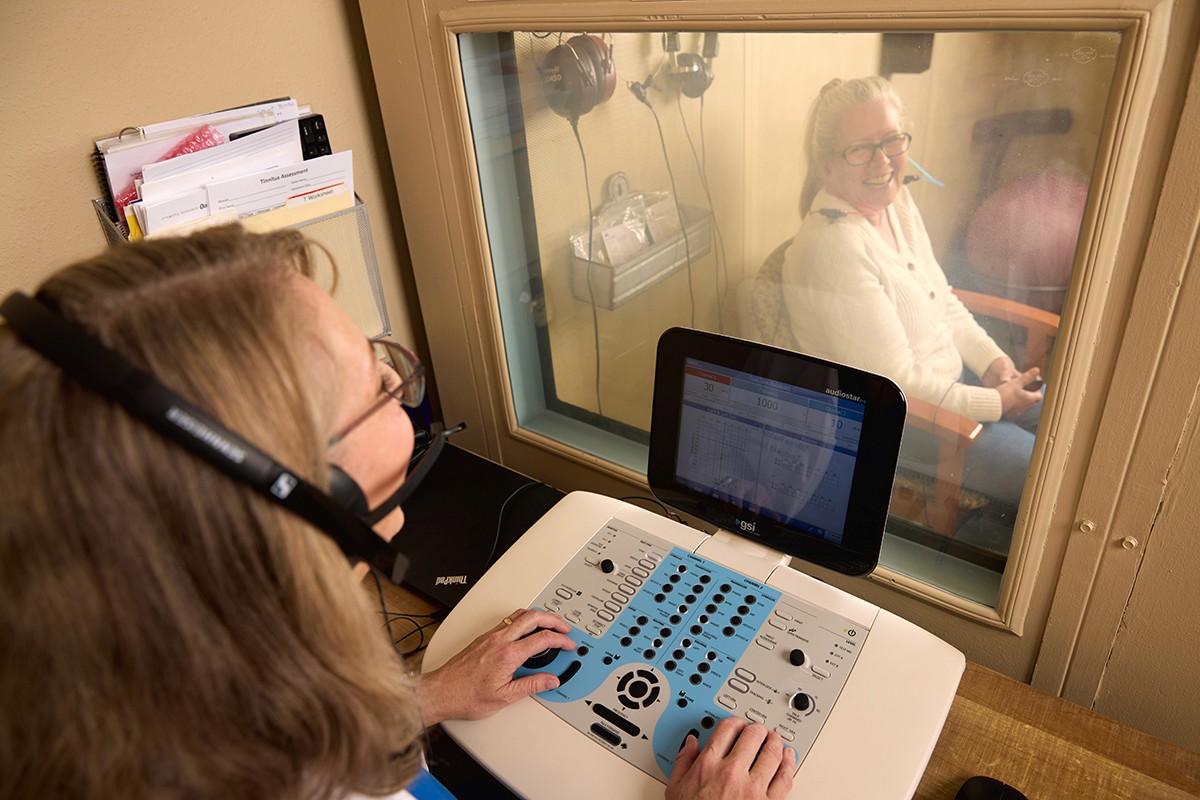
Diagnostic Hearing Evaluations
Although we all recognize the differences between staying at a budget hotel and staying at a 5-star luxurious hotel, some people incorrectly believe that all hearing evaluations are the same. The truth is that the differences are just as vast. Whereas many hearing evaluations focus on simply IF you have a hearing challenge, our focus is on if, why, how and what to instead focus on your overall hearing health and ear-to-brain relationship through a multi-step comprehensive approach that prioritizes your long-term hearing health.
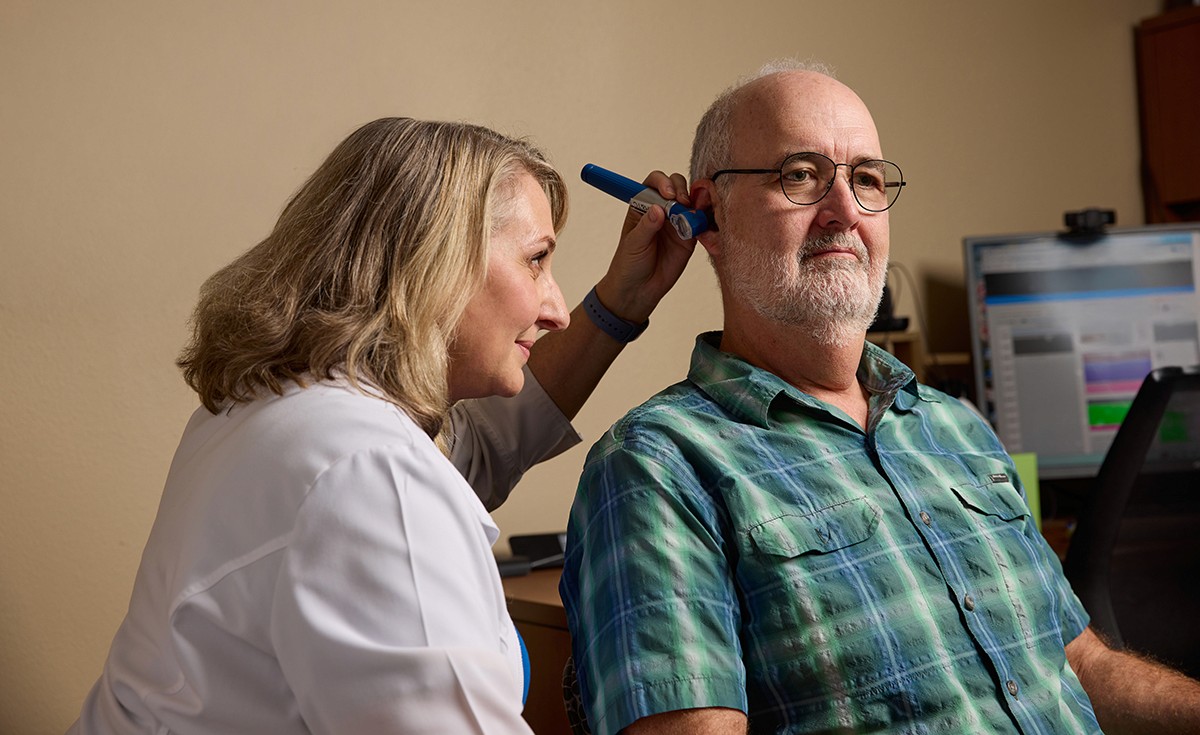

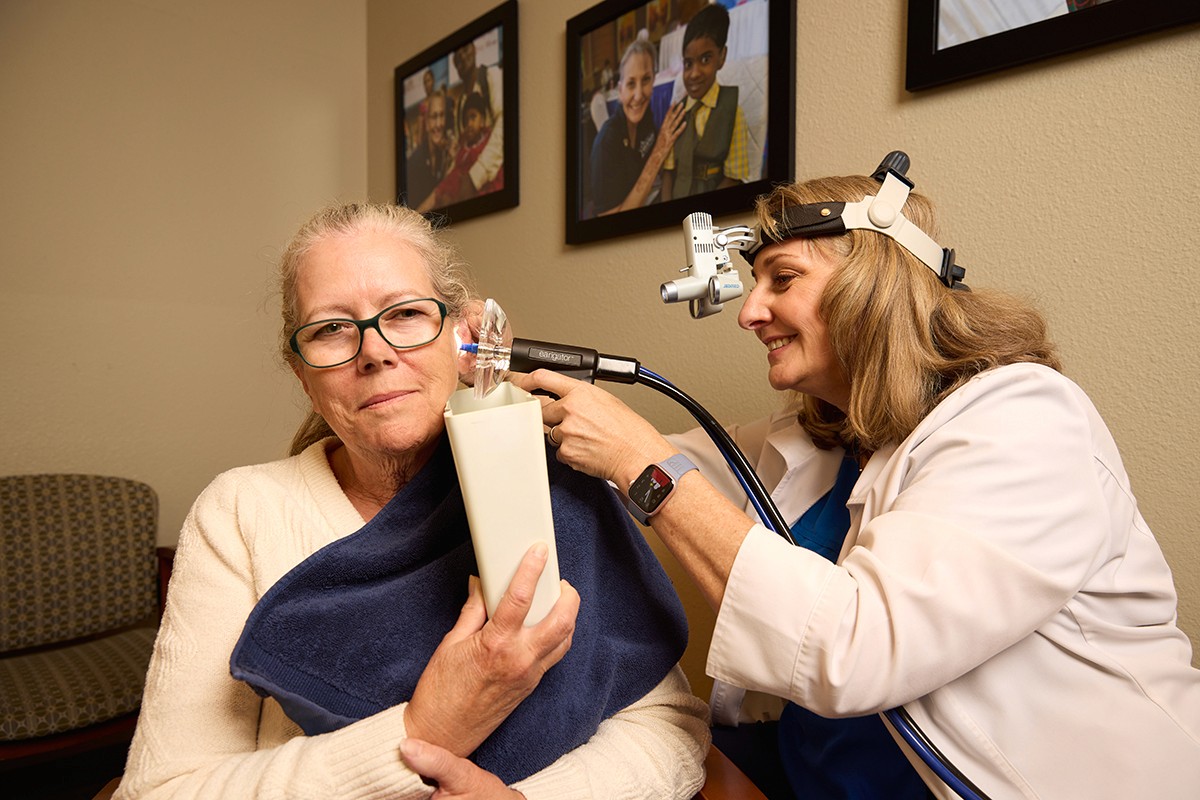

Diagnostic Hearing Evaluations
Although we all recognize the differences between staying at a budget hotel and staying at a 5-star luxurious hotel, some people incorrectly believe that all hearing evaluations are the same. The truth is that the differences are just as vast. Whereas many hearing evaluations focus on simply IF you have a hearing challenge, our focus is on if, why, how and what to instead focus on your overall hearing health and ear-to-brain relationship through a multi-step comprehensive approach that prioritizes your long-term hearing health.




Diagnostic Hearing Evaluations
Although we all recognize the differences between staying at a budget hotel and staying at a 5-star luxurious hotel, some people incorrectly believe that all hearing evaluations are the same. The truth is that the differences are just as vast. Whereas many hearing evaluations focus on simply IF you have a hearing challenge, our focus is on if, why, how and what to instead focus on your overall hearing health and ear-to-brain relationship through a multi-step comprehensive approach that prioritizes your long-term hearing health.



The Latest News in Hearing Healthcare
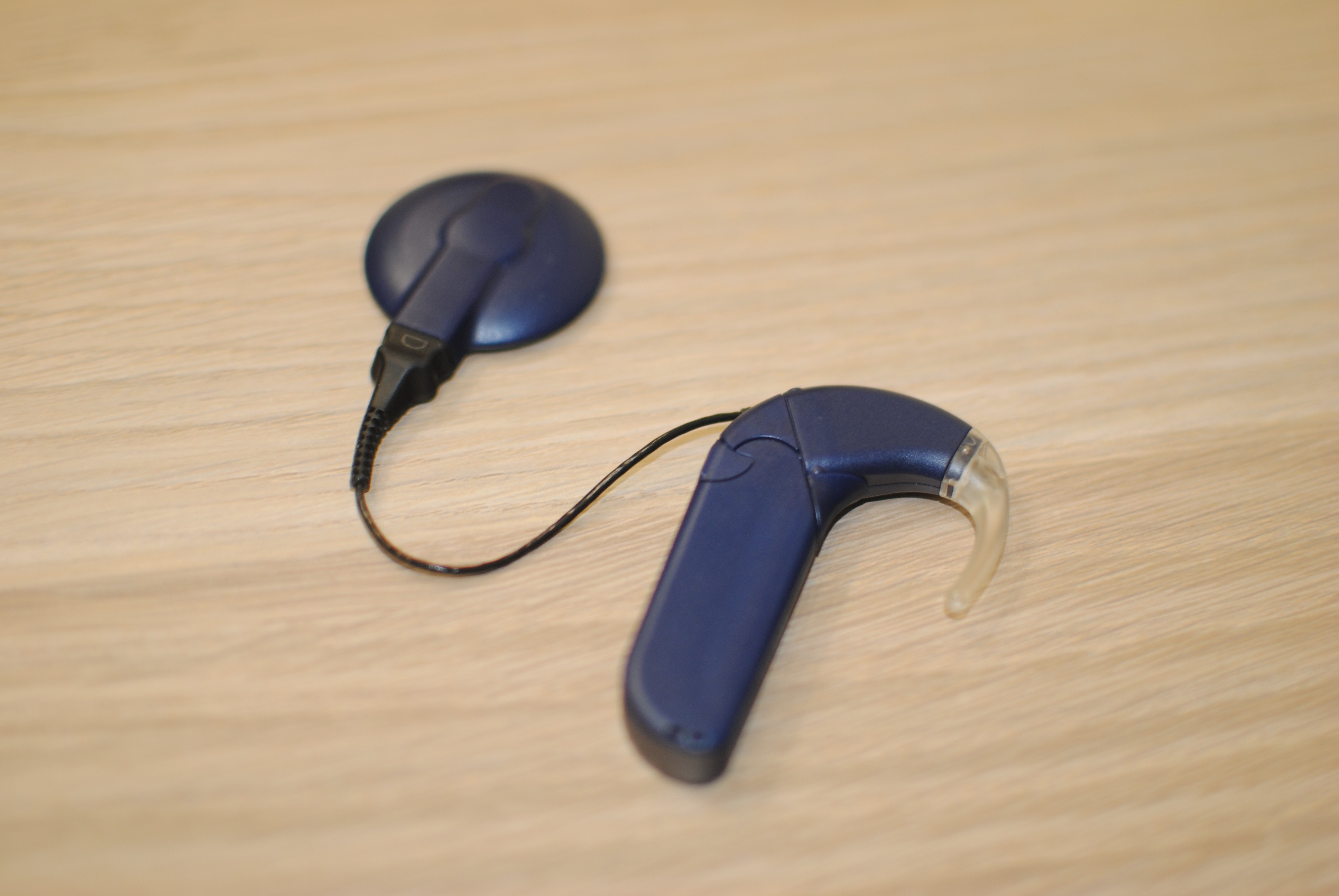
“You Do Not Know What You Are Not Hearing”: Lou’s Inspiring Hearing Health Journey
Lou ignored his hearing loss for years, believing he could get by without aids.
Read More
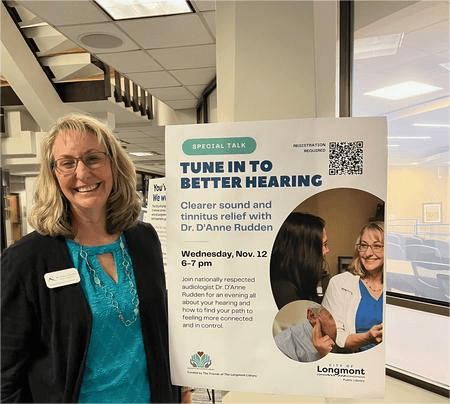
How Can Community Events Help You Hear Better?
Discover how a simple community gathering helped people feel more connected.
Read More

Discover the Heart of Longmont: Pumphouse Brewery
Discover Pumphouse Brewery: A true Longmont gem preserving history, community, and craft.
Read More
The Latest News in Hearing Healthcare

“You Do Not Know What You Are Not Hearing”: Lou’s Inspiring Hearing Health Journey
Lou ignored his hearing loss for years, believing he could get by without aids.
Read More

How Can Community Events Help You Hear Better?
Discover how a simple community gathering helped people feel more connected.
Read More

Discover the Heart of Longmont: Pumphouse Brewery
Discover Pumphouse Brewery: A true Longmont gem preserving history, community, and craft.
Read More
The Latest News in Hearing Healthcare

“You Do Not Know What You Are Not Hearing”: Lou’s Inspiring Hearing Health Journey
Lou ignored his hearing loss for years, believing he could get by without aids.
Read More

How Can Community Events Help You Hear Better?
Discover how a simple community gathering helped people feel more connected.
Read More

Discover the Heart of Longmont: Pumphouse Brewery
Discover Pumphouse Brewery: A true Longmont gem preserving history, community, and craft.
Read More

Leading Lenire Provider in Northern Colorado
We are proud to now offer Lenire®, the FDA-approved breakthrough treatment for tinnitus. This innovative device uses gentle sound therapy combined with tongue stimulation to retrain the brain and reduce the perception of ringing in the ears.





D’Anne Rudden is wonderful! Would recommend her services to anyone. Also, the staff was so lovely and were quick to get me in for an appointment!

Sophie S
2 weeks ago
Special thanks to Dr Demars- she’s fun and wonderful to work with while also being very knowledgeable and professional.

Leanne D
1 month ago
First time visit didn't know what to expect little nervous I was greeted with a warm smile and a greeting.

Gary S
2 months ago
We had an amazing experience with Longmont Hearing and Tinnitus Center! From booking our appointments only 10 days before he end of the year to them fitting my husband.

Diana C
2 weeks ago
Dr. Caney Demars was unlike any other doctor I've seen before, anywhere. She was interested in what I had to say, actually listened to me and showed genuine concern.

Rodger S
Lead Software Engineer
D’Anne Rudden is wonderful! Would recommend her services to anyone. Also, the staff was so lovely and were quick to get me in for an appointment!

Sophie S
2 weeks ago
Special thanks to Dr Demars- she’s fun and wonderful to work with while also being very knowledgeable and professional.

Leanne D
1 month ago
First time visit didn't know what to expect little nervous I was greeted with a warm smile and a greeting.

Gary S
2 months ago
We had an amazing experience with Longmont Hearing and Tinnitus Center! From booking our appointments only 10 days before he end of the year to them fitting my husband.

Diana C
2 weeks ago
Dr. Caney Demars was unlike any other doctor I've seen before, anywhere. She was interested in what I had to say, actually listened to me and showed genuine concern.

Rodger S
Lead Software Engineer
D’Anne Rudden is wonderful! Would recommend her services to anyone. Also, the staff was so lovely and were quick to get me in for an appointment!

Sophie S
2 weeks ago
Special thanks to Dr Demars- she’s fun and wonderful to work with while also being very knowledgeable and professional.

Leanne D
1 month ago
First time visit didn't know what to expect little nervous I was greeted with a warm smile and a greeting.

Gary S
2 months ago
We had an amazing experience with Longmont Hearing and Tinnitus Center! From booking our appointments only 10 days before he end of the year to them fitting my husband.

Diana C
2 weeks ago
Dr. Caney Demars was unlike any other doctor I've seen before, anywhere. She was interested in what I had to say, actually listened to me and showed genuine concern.

Rodger S
Lead Software Engineer
Request a Callback
It’s often the little things that keep us from moving forward. If you have a question or concern about your hearing—or a loved one’s—and want a no-obligation conversation with a trusted team of hearing care professionals, help is just a step away.
Simply fill out the form, and a friendly team member will call you shortly to answer your questions and provide expert advice.
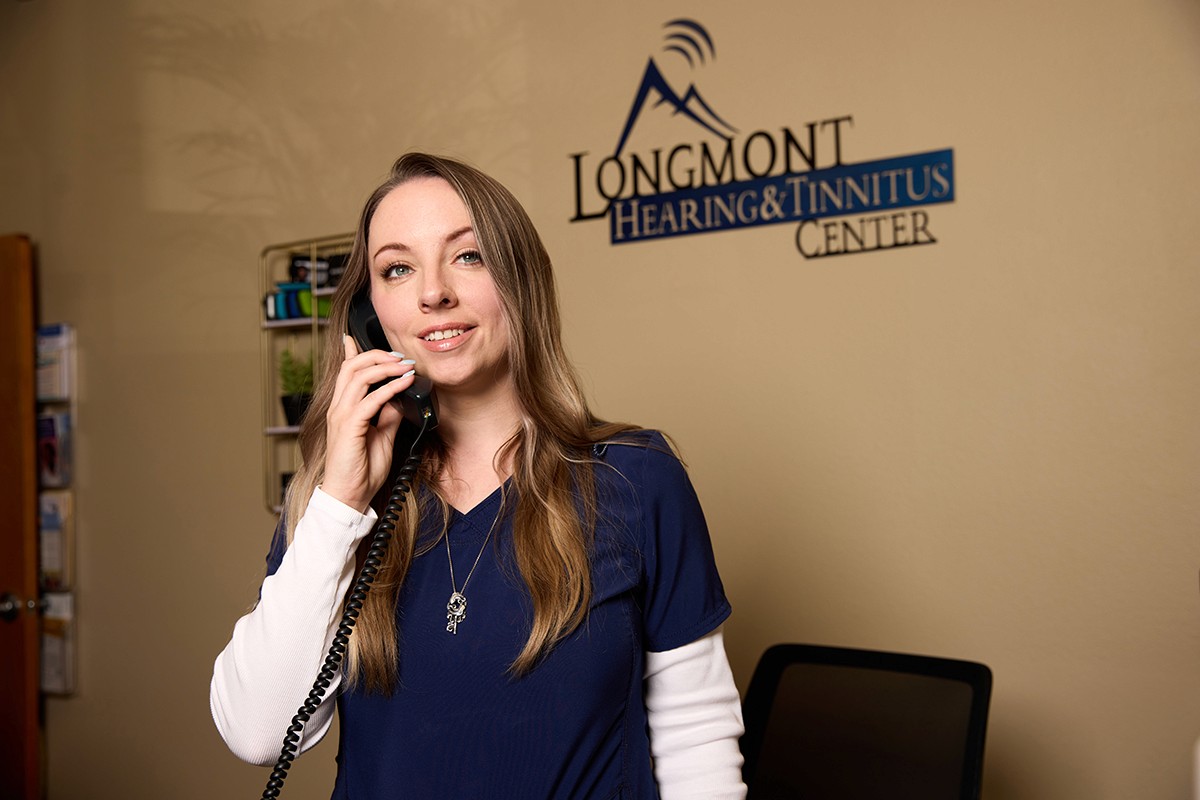
Request a Callback
It’s often the little things that keep us from moving forward. If you have a question or concern about your hearing—or a loved one’s—and want a no-obligation conversation with a trusted team of hearing care professionals, help is just a step away.
Simply fill out the form, and a friendly team member will call you shortly to answer your questions and provide expert advice.
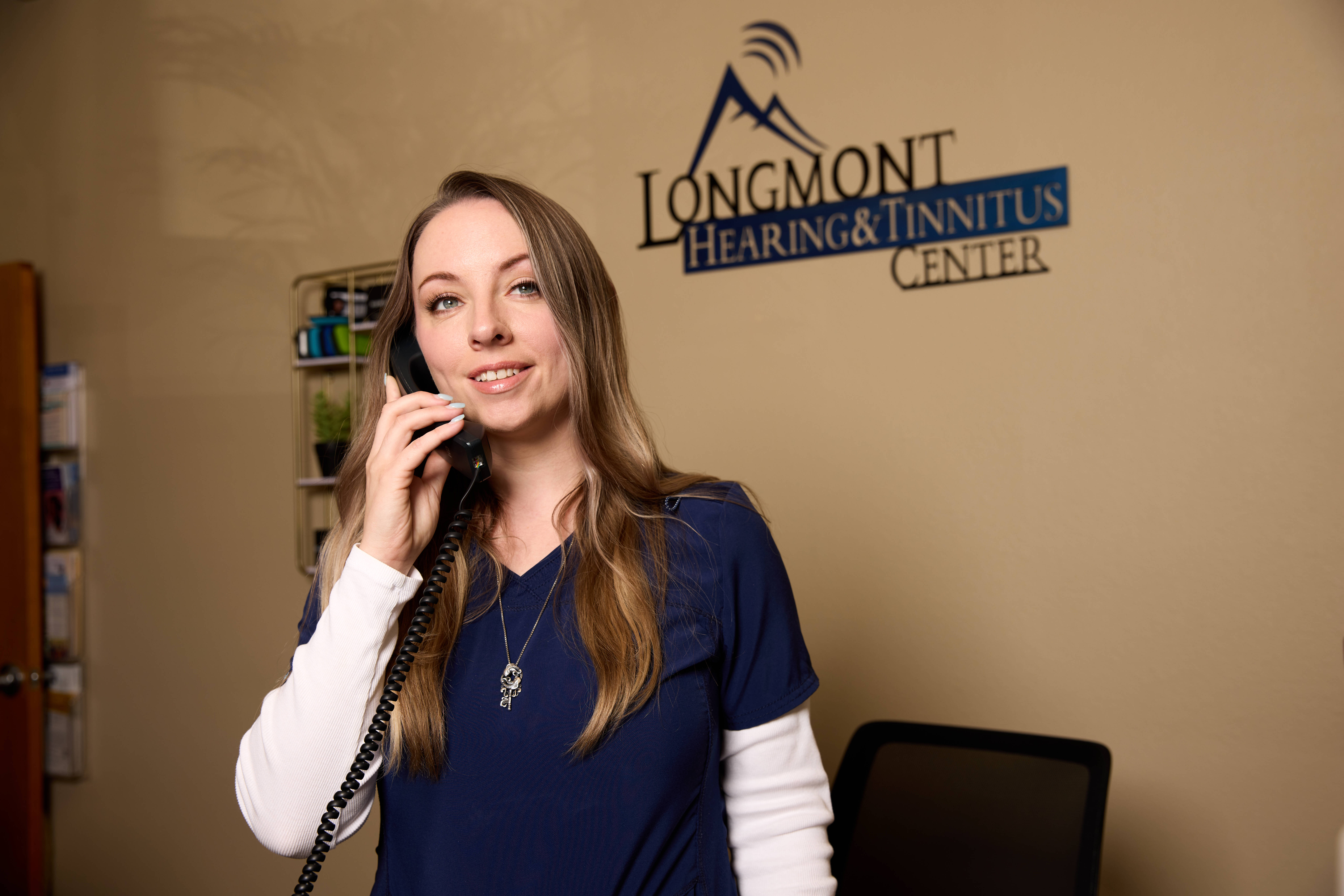
Request a Callback
It’s often the little things that keep us from moving forward. If you have a question or concern about your hearing—or a loved one’s—and want a no-obligation conversation with a trusted team of hearing care professionals, help is just a step away.
Simply fill out the form, and a friendly team member will call you shortly to answer your questions and provide expert advice.

